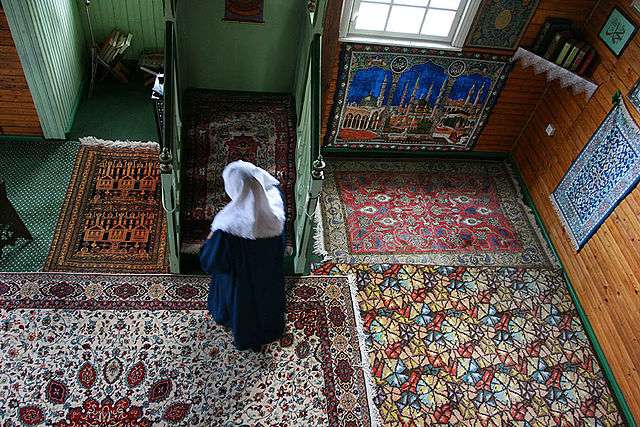
Mosque at Bohoniki: photo - wikipedia
Chief Mufti Tomasz Miskiewicz said that the time-honoured slaughter of lambs in the village of Bohoniki, north east Poland, will take place.
However, Bronislaw Talkowski, chairman of the muslim community in nearby Kruszyniany, has confirmed that the custom will not be practised this year in the latter village.
“We are abstaining from the slaughter, even though it is a limitation on our religious rights,” he said.
Slaughter without prior stunning was made illegal from 1 January 2013, after animal rights activists lobbied for the matter to be taken to Poland's Constitutional Court.
In July, MPs voted down a draft amendment to the law on animal protection that would have allowed for the slaughter of animals without prior stunning, if carried out so as to follow religious customs.
Prime Minister Donald Tusk had supported the amendment, and today, Minister of Administration and Digitalisation Michal Boni noted that he had encouraged Poland's Muslim community to file a complaint with the Constitutional Court.
Poland's Union of Jewish Religious Communities has already done so, and the former intends to follow.
The Feast of the Sacrifice commemorates the prophet Ibrahim (Abraham) whose faith was tested when he was commanded to sacrifice his son Ishmael (Isaac). The prophet was relieved from his duty at the last moment, and a ram was sacrificed in Ishmael's place.
The holiday counts as one of the two most important observances in the Muslim calendar, and it marks a time of prayers and visits to loved ones.
It is estimated that there are between 3000 and 5000 Tatars living in Poland today.
Owing to assimilation over the centuries, many Poles have Tatar backgrounds. The late Nobel Prize-winning author Henryk Sienkiewicz had Tatar roots, as does internationally renowned sculptor Magdalena Abakanowicz.
All in all, it is estimated that over 25,000 Muslims currently live in Poland, including foreign students, diplomats, businessmen and refugees. (nh)
Source: PAP/IAR